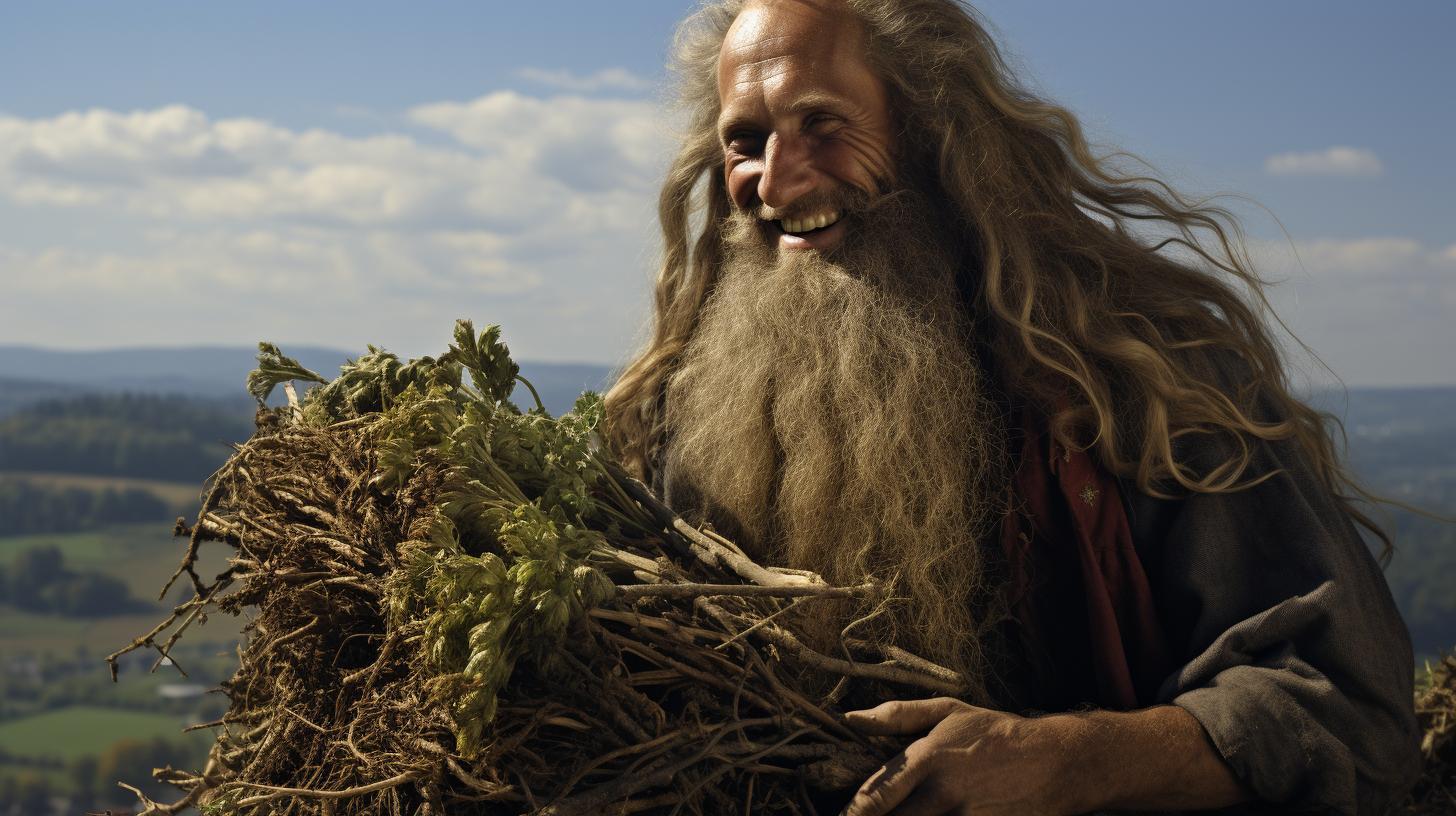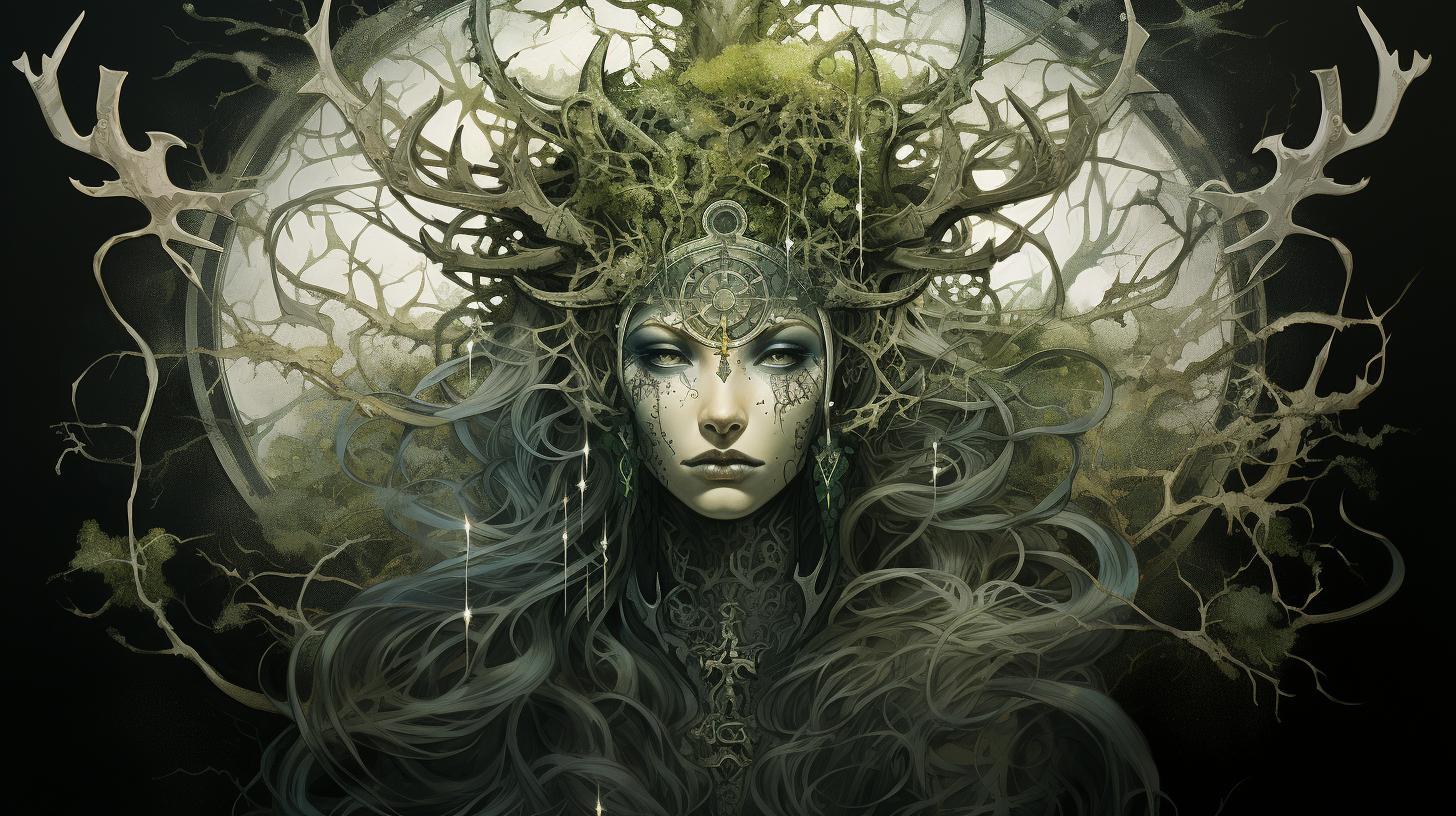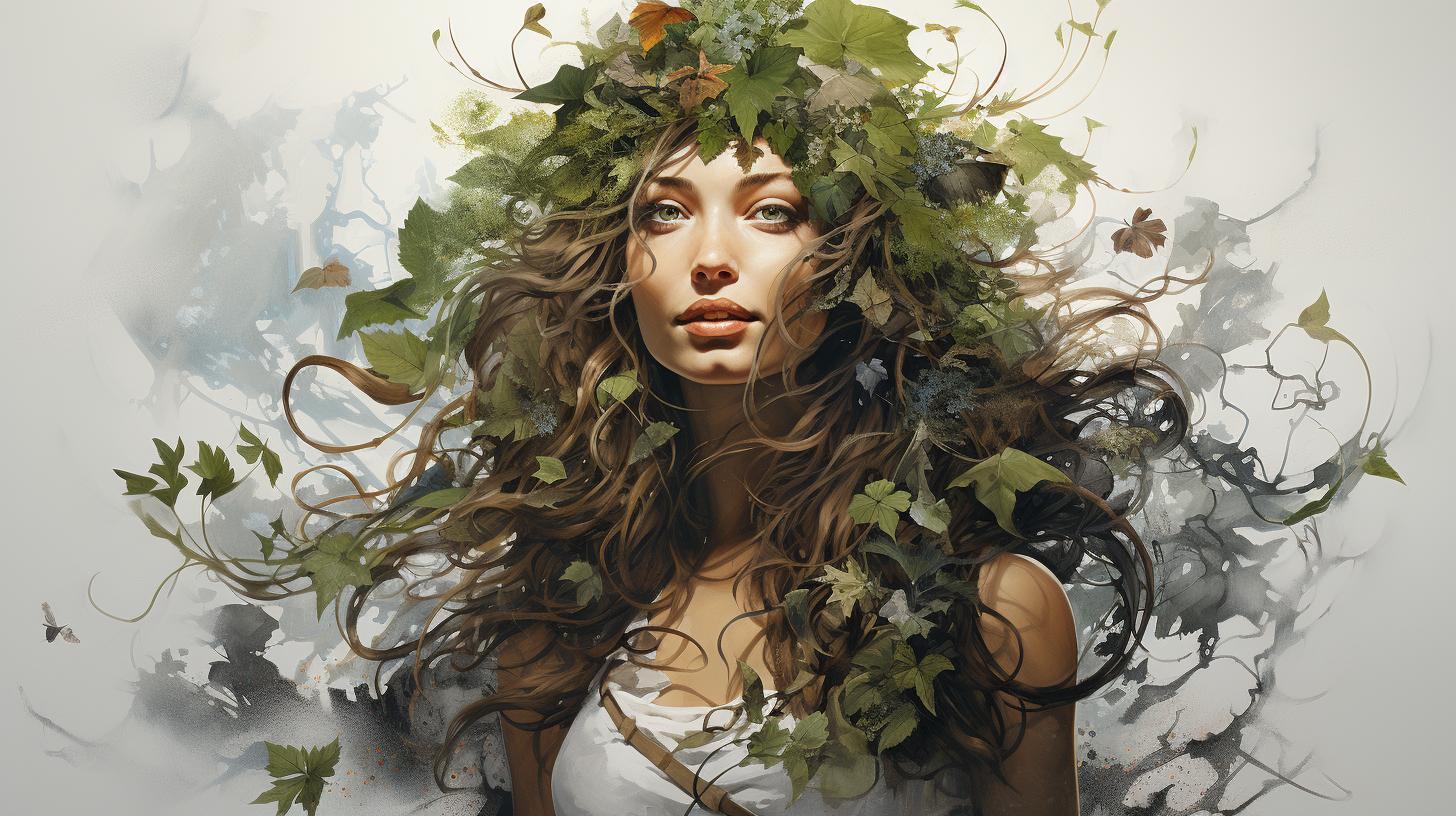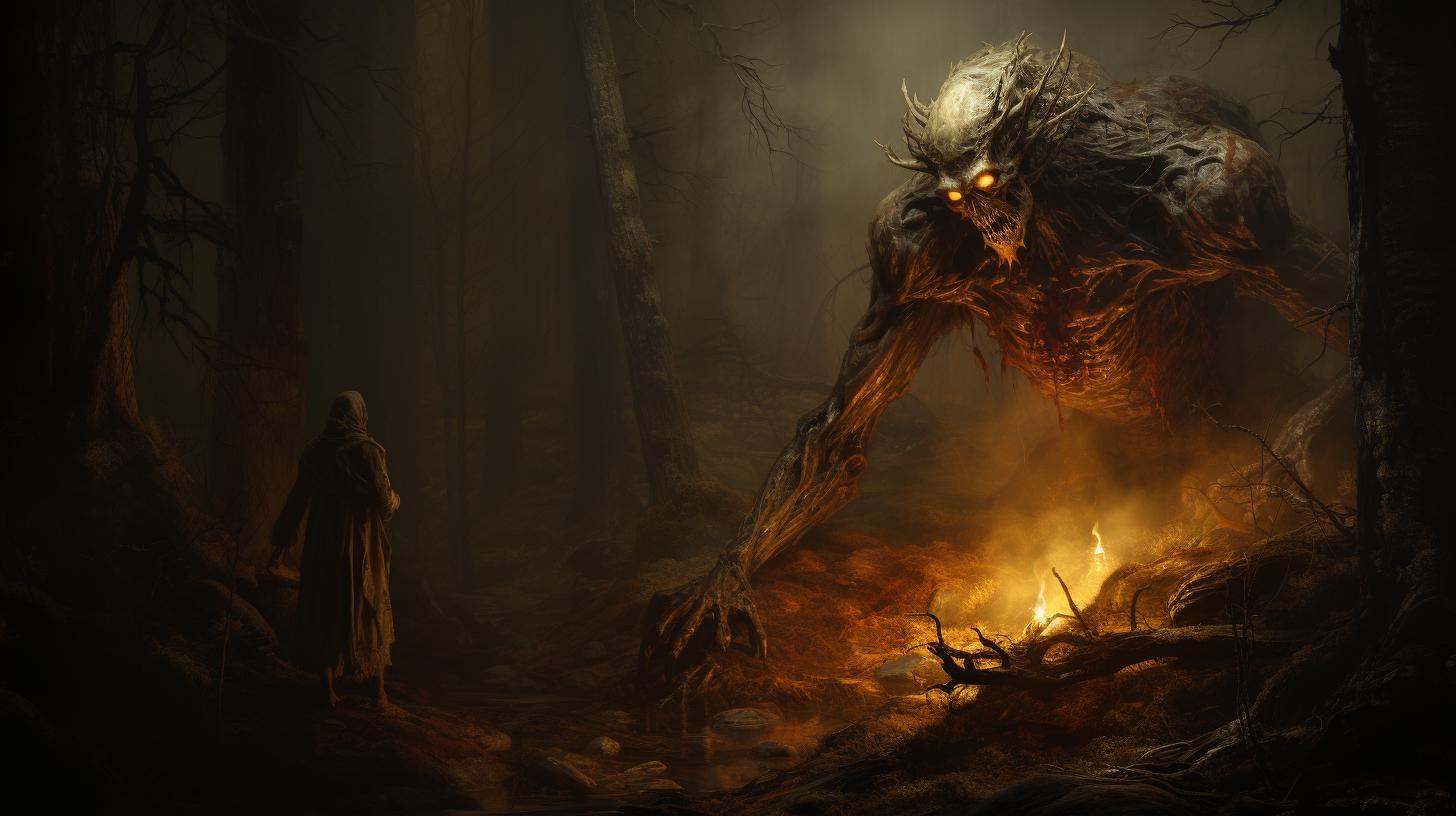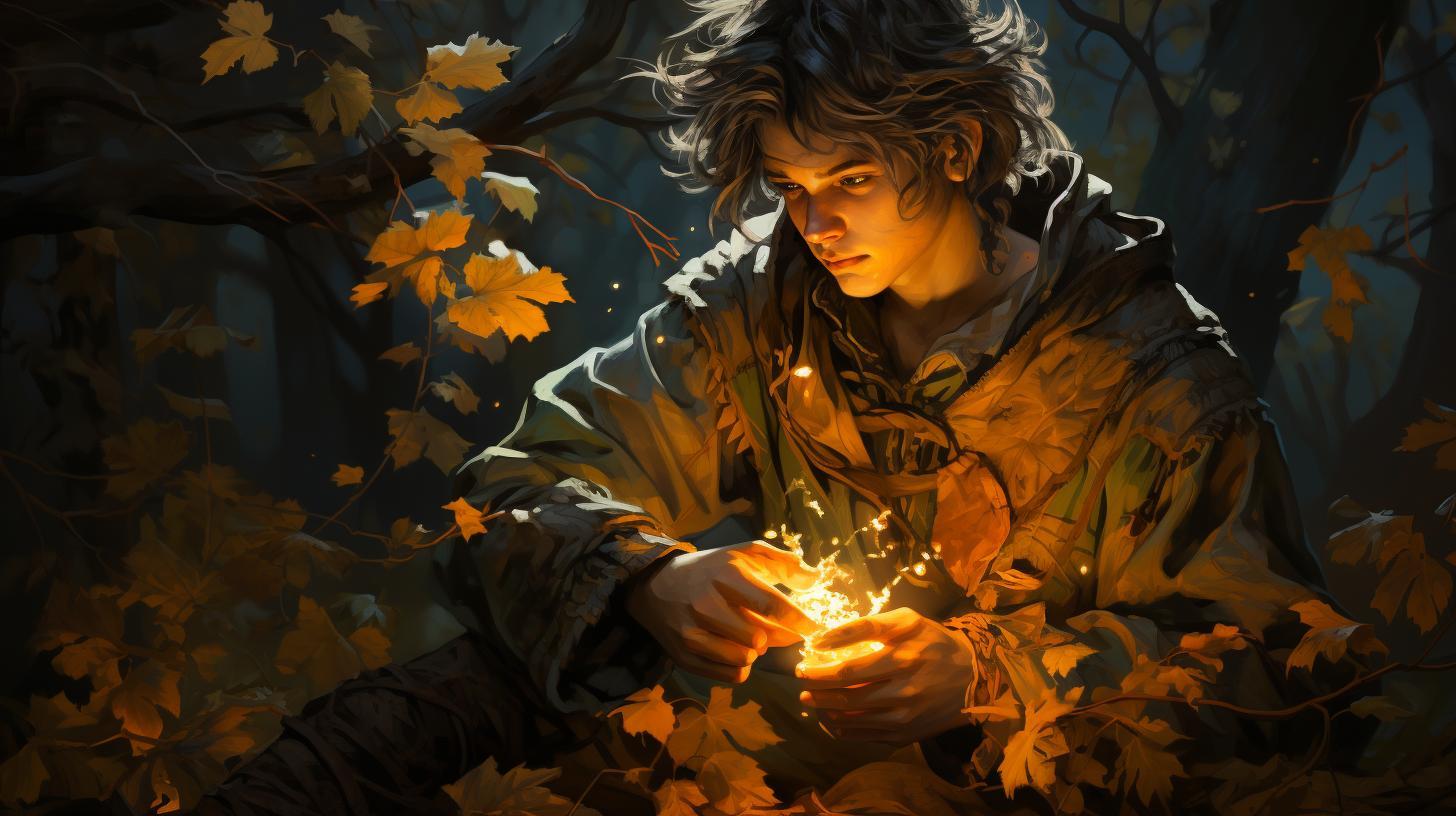Discover the Mythology of Finnish Gods and Goddesses in Finland!
Finnish gods and goddesses hold a significant place in Finnish mythology, deeply rooted in the country’s cultural heritage. The rich tradition of Finnish folklore has preserved these ancient beliefs throughout the centuries.
Explore the prominent figures like Väinämöinen, a wise and magical hero, Ukko, the mighty god of thunder and sky, and Tapio and Mielikki, the guardians of the forest and nature.
Dive into the epic tale of Kalevala, Finland’s national epic, and unravel the mythical themes and its influence on Finnish literature and culture.
Finnish Mythology and its Importance in Finnish Culture
Finnish mythology holds a significant place in the cultural heritage of Finland.
It showcases a rich tradition of folklore that has been passed down through generations. This mythology, although less known compared to Norse mythology, has remained remarkably persistent and creative in its oral tradition and folk tales.
The Rich Tradition of Finnish Folklore
Finland, with its sparsely populated landscapes of forests and lakes, has provided fertile ground for the development of a unique folklore tradition. Over the centuries, conscious efforts have been made to document and preserve the wealth of Finnish mythology, setting it apart from other cultures where such traditions have been lost.
Preserving Finnish Mythology throughout the Centuries
Despite the spread of Christianity in Finland, Finnish mythology did not vanish; instead, it merged with the new stories told around the fire on cold winter nights. This rich tradition has been passed down from generation to generation and continues to be cherished in Finnish society today.
The persistence of Finnish mythology showcases its enduring importance and its ability to adapt to changing times.
By exploring the gods, goddesses, heroes, and creatures of Finnish mythology, we can gain a deeper understanding of the cultural identity of Finland and the significance of these ancient beliefs in shaping its history and traditions.
Exploring the Gods and Goddesses of Finnish Mythology
Embark on a fascinating journey through the realm of Finnish mythology as we delve into the stories and legends surrounding the gods and goddesses of this ancient tradition.
Väinämöinen: The Wise and Magical Hero
Discover the captivating tales of Väinämöinen, a legendary hero revered for his wisdom and extraordinary magical abilities. Explore his pivotal role in the creation of the world through the power of music and poetry.
Ukko: The Mighty God of Thunder and Sky
Unleash the thunderous power and strength of Ukko, the principal god of Finnish mythology, who commands the skies and controls the forces of nature. Delve into the intriguing stories that surround this mighty deity.
Tapio and Mielikki: Guardians of the Forest and Nature
Enter the mystical realm of Tapio and Mielikki, the guardians of the forest and nature in Finnish mythology. Learn about their vital role in the preservation and harmony of Finland’s natural landscapes.
Ilmarinen: The Skillful Craftsman and Creator
Uncover the tales of Ilmarinen, the masterful blacksmith and craftsman, known for his skill in shaping metals and creating powerful artifacts. Explore the legendary exploits and creations associated with this revered figure.
Immerse yourself in the enchanting stories and legends that surround these gods and goddesses of Finnish mythology. Their timeless tales continue to captivate and inspire, illustrating the rich cultural heritage of Finland.
The Epic Tale of Kalevala: Finland’s National Epic
The Kalevala stands as Finland’s national epic, a remarkable collection of mythical and historical themes that captivate the imagination. This epic masterpiece, compiled and written by Elias Lönnrot in the 19th century, weaves together the ancient oral traditions and folklore of Finland into a cohesive narrative.
Unraveling the Mythical and Historical Themes in Kalevala
Within the Kalevala, a vast tapestry of mythical and historical themes unfolds, allowing readers to delve into the depths of Finnish culture and storytelling. Explore the vivid world of creation myths, magical creatures, and heroic quests that are prominently featured throughout the epic.
The Creation of the World and the Birth of Heroes in Kalevala
At the heart of the Kalevala lies the story of the creation of the world itself. Discover how Väinämöinen, the wise hero, and master musician, played a vital role in this mythical act of creation.
Immerse yourself in the tales of other legendary heroes, such as Lemminkäinen and Ilmarinen, who were born from the rich tapestry of Finnish mythology.
The Kalevala and its Influence on Finnish Literature and Culture
The influence of the Kalevala extends far beyond its role as a beloved epic within Finnish culture. Explore how this epic has inspired generations of Finnish writers, artists, and musicians, leaving an indelible mark on Finnish literature and shaping the national identity.
Investigate its links to renowned Finnish works of art, such as Jean Sibelius’ orchestral compositions and Aleksis Kivi’s novel, “Seven Brothers.” Uncover the enduring power of the Kalevala, as it continues to resonate with people both in Finland and around the world, testament to the rich cultural heritage and timeless themes contained within its verses.
Finnish Mythology in a Modern Context
Finnish mythology has not disappeared with the arrival and spread of Christianity in Finland; instead, it has undergone a transformation and coexistence with the new religious beliefs. The impact of Christianity on Finnish mythology has resulted in a fusion of old and new stories, creating a unique blend of traditions.
The Impact of Christianity on Finnish Mythology
With the introduction of Christianity, many aspects of Finnish mythology were reinterpreted and incorporated into the newly emerging Christian narrative. Gods and goddesses were often reimagined as saints or spirits, and traditional rituals and beliefs were adapted to fit within the framework of Christianity.
This integration of mythology and Christianity not only allowed the continuation of Finnish mythological traditions, but it also facilitated the acceptance of the new religion among the Finnish people. The mythology became intertwined with the new stories and teachings, adapting to survive in a changing religious landscape.
Revitalization and Adaptation of Finnish Mythology in Modern Times
In more recent times, there has been a growing interest in reviving and preserving Finnish mythology. As Finland embraces its cultural heritage, there has been a resurgence in studying and exploring the ancient myths and legends.
Scholars and artists have delved into the rich tapestry of Finnish mythology, seeking inspiration for literature, art, and music.
The revitalization of Finnish mythology goes beyond academic and artistic endeavors. There is a renewed appreciation for the connection between nature and spirituality, with many Finns embracing the traditional beliefs as a way to reconnect with their roots and the natural world.
Modern adaptations of Finnish mythology can be seen in various forms, including contemporary literature, films, and even video games. These adaptations often employ elements from the ancient myths, weaving them into new narratives that resonate with modern audiences.
- The integration of Finnish mythology into contemporary culture
- Ways in which Finnish mythology inspires artistic expressions
- Exploring the role of Finnish mythology in popular media and entertainment
- The impact of revitalizing Finnish mythology on cultural identity and pride
In conclusion, Finnish mythology continues to thrive in a modern context, influenced by both historical events and the evolving beliefs of the Finnish people.
The impact of Christianity has shaped the mythology’s narrative, while contemporary efforts have breathed new life into these ancient stories. Finnish mythology serves as a bridge between the past and the present, connecting the Finnish people to their cultural heritage and inspiring creative expression.
Finnish Mythology and its Connections with Other Mythological Beliefs
Finnish mythology shares interesting similarities and differences with other mythological beliefs, shedding light on ancient connections and cultural exchanges. Let’s explore some of these fascinating connections:
Similarities and Differences between Finnish and Baltic Mythologies
Both Finnish and Baltic mythologies have roots in ancient Baltic-Finnic and Uralic cultures.
These mythologies showcase overlapping themes, such as nature worship, shamanism, and belief in nature spirits. However, there are notable differences in the pantheons and specific deities worshipped. While Finnish mythology centers around gods like Ukko and Väinämöinen, Baltic mythology revolves around deities like Perkūnas and Laima.
Finnish Mythology and its Influence on Estonian Mythology
The geographic proximity between Finland and Estonia has led to significant cultural exchange and influence on mythologies. Finnish mythology has played a role in shaping Estonian mythological beliefs, particularly the influence of the epic Kalevala.
The shared folklore has strengthened the cultural bond between these neighboring countries, highlighting the interconnectedness of their mythologies.
Comparisons between Finnish Mythology and Native American Beliefs
While Finnish mythology and Native American beliefs originate from vastly different cultures and geographical locations, there are intriguing comparisons to be made. Both mythologies exhibit deep connections to nature, the spiritual significance of animals, and the belief in a spiritual realm or afterlife.
These parallels emphasize the universality of certain mythological themes and the profound human connection to the natural world.
Symbolism and Significance in Finnish Mythology
Finnish mythology is rich in symbolism and holds great significance in understanding the worldview of the Finnish people. Through their myths and legends, the Finns used various symbols to depict their deep connection with nature, the role of animals and creatures in their beliefs, and their concept of the soul and the afterlife.
Nature and the Elements in Finnish Mythology
In Finnish mythology, nature and the elements hold immense symbolism. The forests, lakes, and rivers represent the sacredness of the land, and each has its own guardian deity. The forest is seen as a source of life, wisdom, and magic, while the lakes and rivers are associated with purification, fertility, and abundance.
The sun and the moon are revered as celestial bodies that govern time and seasons, embodying light and darkness, day and night.
The Role of Animals and Creatures in Finnish Mythology
Animals and creatures play a significant role in Finnish mythology, often serving as messengers, guides, or symbols of certain qualities. The bear, known as the King of the Forest, symbolizes strength, power, and protection.
The elk is associated with wisdom and the connection between the earthly and spiritual realms. Birds like the swan and the eagle represent grace, freedom, and divine messages. Mythical creatures such as dragons and mermaids symbolize the balance of opposing forces and the mysteries of nature.
The Concept of the Soul and the Afterlife in Finnish Mythology
In Finnish mythology, the concept of the soul and the afterlife is interconnected with nature and the cycles of life. It is believed that the soul resides within every living being and continues to exist after death.
The underworld, known as Tuonela, is the realm where souls go after departing from the earthly plane. It is seen as a place of rest and transformation, where souls reunite with their ancestors.
Rituals and offerings to the deceased are important in ensuring a peaceful journey to the afterlife.
Exploring the symbolism and significance of Finnish mythology allows us to delve deeper into the cultural heritage of Finland and understand the profound connection between nature, animals, and the spiritual realm.
These beliefs have shaped the identity and worldview of the Finnish people, preserving their rich traditions throughout history

